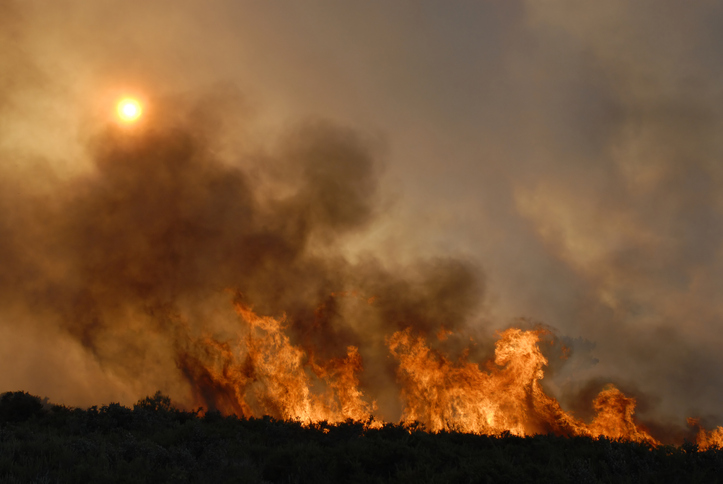SAN FRANCISCO – Wildfires burning across Northern California coupled with extreme heat and dryness has the air quality in the unhealthy range. All of this is sparking concerns for people with respiratory issues, especially those with COVID-19. Dr. Vinayak Jha, a pulmonologist affiliated with Sutter’s California Pacific Medical Center, says the best way to protect ourselves from the virus and poor air quality is to stay indoors and wear a mask or face covering when outside.
Jha says elderly people, children and individuals with respiratory illnesses are particularly susceptible to elevated air pollution levels. With smoky air blanketing much of the Bay Area and the Sacramento and Central Valley regions, these at-risk populations should take extra precautions to avoid exposure.
Know before you go: View a list of Sutter Health facilities temporarily closed due to the effects of wildfires in Northern California.
Signs Wildfire Smoke May Be Affecting You
Breathing in wildfire smoke can have both immediate and long-term health impacts. In the short term, wildfire smoke can irritate the eyes and airways, causing coughing, a dry scratchy throat and irritated sinuses. Elevated particulate matter in the air can also trigger wheezing in those who suffer from asthma, emphysema or COPD (Chronic obstructive pulmonary disease).
Contact your provider if you experience any of the following symptoms:
• Repeated coughing
• Shortness of breath or difficulty breathing
• Wheezing
• Chest tightness or pain
• Palpitations
• Nausea or unusual fatigue
• Lightheadedness
What happens when a virulent virus is added to the mix? In a recent article by the San Francisco Chronicle, Jha explains that people are already concerned about catching the COVID-19 virus and becoming ill. And the situation becomes more complicated when smoke from wildfires is combined with the unusually high temperatures we’ve experienced in Northern California. This trifecta is not ideal for those with respiratory conditions.
Jha says the early science is revealing. “There are growing reports out of China, Europe and the U.S. that the more air pollution there is, the more COVID deaths and cases there are. There’s some reason for concern that wildfire smoke, besides being bad for people in general, may affect people’s susceptibility to getting the virus, too.”
Recovering from COVID-19? Living with a respiratory illness? Here’s what you should do if wildfire smoke becomes a problem.
As this fire seasons heats up, Jha recommends COVID-19 patients keep in close contact with their health care providers and avoid exerting themselves, especially if they are at the beginning of the illness.
“Continue to socially distance, and continue to wear a mask in public,” says Jha. He encourages people to check the Air Quality Index (here), check their own home air purifying system to make sure the filters are clean, and have a plan in case you need to leave the area.
Pulmonary Care
In the Sutter Health network, pulmonary specialists have deep expertise in treating acute and chronic lung conditions, including asthma, bronchiolitis, emphysema and pneumonia. They offer treatment for interstitial lung disease, advanced COPD, pulmonary nodules and pulmonary hypertension.
In light of COVID-19, Sutter Bay Medical Foundation stood up respiratory care clinics (RCCs) to prepare for increased patient demand. These exam experiences keep potentially contagious people distanced from those that aren’t, while allowing all who need in-person care to receive it.
Read more about Sutter’s respiratory care clinics here.
Sutter Health is committed to your health and safety. If you need care, make an appointment today. Our care teams are ready to serve you, either in person or by Video Visit.
Learn more about getting care during COVID-19 here.





